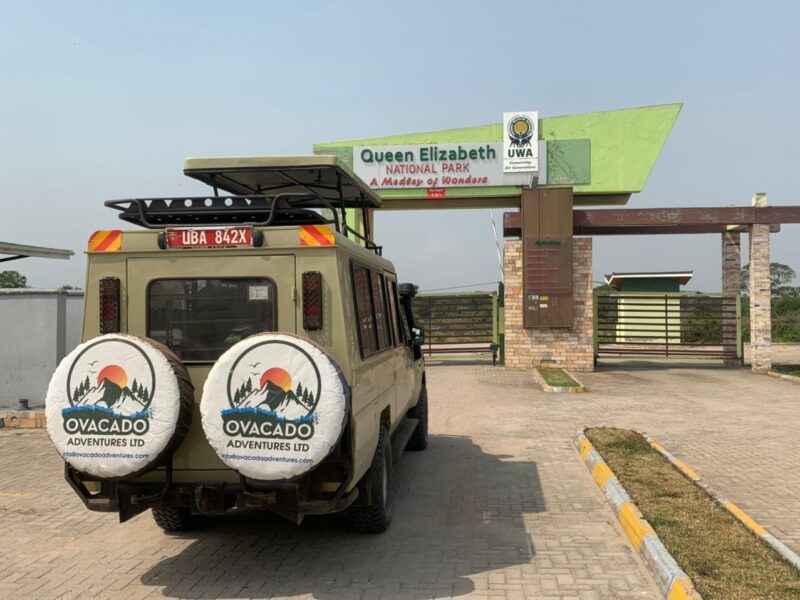Sustainable Tourism in Uganda
Uganda is a country with a rich diversity of natural attractions, including mountains, forests, lakes, and wildlife. Sustainable tourism is an approach to tourism that seeks to minimize its negative impact on the environment and local communities while maximizing its positive impact on the economy and social well-being of the local population.
To promote Eco-tourism in Uganda, several measures can be taken:
- Conservation and protection of natural resources: Uganda has several national parks and reserves, such as Bwindi Impenetrable National Park, Mgahinga Gorilla National Park, Queen Elizabeth National Park, and Murchison Falls National Park. These parks are home to various wildlife species, including endangered mountain gorillas, chimpanzees, elephants, and lions. It’s important to conserve and protect these natural resources to ensure their survival and maintain their ecological balance.
- Community involvement and empowerment: responsible tourism should be community-based, with the involvement of the local communities in tourism planning, decision-making, and implementation. This approach can help empower local communities economically and socially by providing them with employment opportunities and promoting their cultural heritage.
- Environmental sustainability: Sustainable tourism should promote environmental sustainability by reducing carbon emissions, conserving water resources, and promoting eco-friendly practices such as recycling, waste management, and energy conservation.
- Responsible tourism practices: Tour operators and visitors should practice responsible tourism by minimizing their negative impact on the environment and local communities. This can include reducing waste, respecting local cultures and customs, and supporting local businesses and suppliers.
- Education and awareness: Education and awareness-raising campaigns can help promote sustainable tourism by educating visitors, local communities, and tour operators on the importance of conservation, environmental sustainability, and responsible tourism practices.
By adopting these measures, Uganda can promote responsible tourism and ensure that its tourism industry contributes to the economic development of the country while minimizing its negative impact on the environment and local communities.
Relation Between Sustainable Tourism and Eco-tourism
Sustainable tourism and eco-tourism are related concepts, but they have some distinct differences.
Sustainable tourism is an approach to tourism that seeks to minimize its negative impact on the environment and local communities while maximizing its positive impact on the economy and social well-being of the local population. Ecotourism takes a holistic approach to tourism management that considers environmental, social, and economic factors.
Eco-tourism, on the other hand, is a subset of sustainable tourism that focuses specifically on nature-based tourism activities that promote conservation and environmental sustainability. Eco-tourism activities are often guided by the principles of responsible travel, such as minimizing negative impacts on the environment, supporting conservation efforts, and providing economic benefits to local communities.
While responsible tourism encompasses a broad range of tourism activities, eco-tourism is a more specific form of ecotourism that prioritizes nature-based activities and conservation. However, both sustainable tourism and eco-tourism share the goal of minimizing negative impacts on the environment and local communities while promoting economic and social benefits for local populations.
Why is Sustainable Tourism Important?
Sustainable tourism is important for several reasons, including:
- Environmental conservation: Tourism can have a significant impact on the environment, including the degradation of natural resources, increased carbon emissions, and pollution. Sustainable tourism practices aim to reduce these negative impacts and preserve natural resources for future generations.
- Economic benefits: Tourism can be a significant source of income for local communities and contribute to the economic development of a region. Responsible tourism practices can ensure that tourism benefits local communities and promotes long-term economic growth.
- Cultural preservation: Sustainable tourism can help preserve local cultures and traditions by promoting cultural heritage and providing opportunities for cultural exchange.
- Social well-being: Sustainable tourism can promote social well-being by providing employment opportunities, supporting local businesses, and improving infrastructure in the region.
- Responsible tourism: Responsible tourism practices promote responsible tourism, which involves respecting local cultures, customs, and traditions, minimizing negative impacts on the environment, and contributing to the local economy and community.
Overall, sustainable tourism is important because it promotes the responsible use of resources, supports local communities, and preserves natural and cultural heritage for future generations. It also promotes long-term economic growth and contributes to the well-being of local communities.
Sustainable Tourism Best Practices in Uganda
Uganda is a country with a rich diversity of natural and cultural resources, and responsible tourism can play a significant role in its economic and social development. Here are some best practices for sustainable tourism in Uganda:
Community involvement and empowerment:
Sustainable tourism should be community-based, with the involvement of the local communities in tourism planning, decision-making, and implementation. This approach can help empower local communities economically and socially by providing them with employment opportunities and promoting their cultural heritage.
Conservation and protection of natural resources:
Uganda has several national parks and reserves, such as Bwindi Impenetrable National Park, Mgahinga Gorilla National Park, Queen Elizabeth National Park, and Murchison Falls National Park. These parks are home to various wildlife species, including endangered mountain gorillas, chimpanzees, elephants, and lions. It’s important to conserve and protect these natural resources to ensure their survival and maintain their ecological balance.
Environmental sustainability:
Sustainable tourism should promote environmental sustainability by reducing carbon emissions, conserving water resources, and promoting eco-friendly practices such as recycling, waste management, and energy conservation. For example, lodges and accommodations can use solar energy and rainwater harvesting systems to reduce their environmental impact.
Responsible tourism practices:
Uganda Tour operators and visitors should practice responsible tourism by minimizing their negative impact on the environment and local communities. This can include reducing waste, respecting local cultures and customs, and supporting local businesses and suppliers.
Education and awareness:
Education and awareness-raising campaigns can help promote sustainable tourism by educating visitors, local communities, and Uganda tour operators on the importance of conservation, environmental sustainability, and responsible tourism practices.
Community tourism:
Community tourism is a form of sustainable tourism that involves the participation of local communities in tourism activities, such as homestays, cultural tours, and community-based conservation projects. This can provide employment opportunities and promote cultural exchange while supporting conservation efforts.
Overall, sustainable tourism practices in Uganda should prioritize the conservation of natural and cultural resources, empower local communities, promote environmental sustainability, and practice responsible tourism. By adopting these practices, Uganda can ensure that its tourism industry contributes to the economic development of the country while minimizing its negative impact on the environment and local communities.












